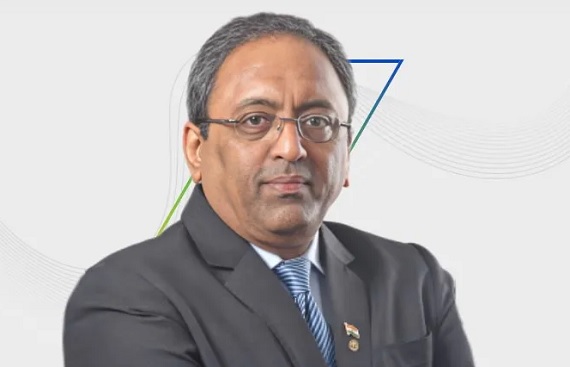Industry Leaders Reject 90-Hour Work Week
By
siliconindia | Saturday, 11 January 2025, 05:30 Hrs

The debate over work-life balance was reignited recently after Larsen & Toubro (L&T) Chairman SN Subrahmanyan advocated for a 90-hour work week, drawing sharp criticism from industry leaders and netizens. Subrahmanyan’s controversial comments, in which he suggested that employees should even give up Sundays and asked, "How long can you stare at your wife?", sparked outrage online. His statement, along with his remuneration package of Rs 51.05 crore in 2023-24 - 534.57 times the median salary of L&T employees added fuel to the fire.
Industry leaders such as Harsh Goenka, Harsh Mariwala, and Rajiv Bajaj have expressed their strong opposition to the idea, emphasizing the importance of work-life balance. RPG Enterprises Chairman Harsh Goenka, known for his wit, criticized the suggestion on X (formerly Twitter), writing, “90 hours a week? Why not rename Sunday to ‘Sun-duty’ and make ‘day off’ a mythical concept!” Goenka stressed that hard work should be balanced with personal well-being, adding, 'Work-life balance isn’t optional, it’s essential', He advocated for working smarter, not harder, for success.
Marico Ltd Chairman Harsh Mariwala echoed similar sentiments, stating that success is not about the number of hours worked but about the quality and passion brought to the job. He highlighted the importance of aligning roles with employees’ interests and fostering a culture of growth, transparency, and trust. He emphasized that when young professionals find purpose in their work, the need to 'balance' becomes a seamless integration of personal and professional fulfillment, rather than a separate entity.
Rajiv Bajaj, Managing Director of Bajaj Auto, added his perspective in a TV interview, suggesting that if a 90-hour work week is to be implemented, it should start from the top of the organization. He also criticized the outdated notion of measuring success by hours worked, calling it 'archaic and regressive'.
This debate is not new. Last year, Infosys Co-founder Narayana Murthy stirred controversy by suggesting that India’s youth should be prepared to work 70-hour weeks, a view supported by Ola founder Bhavish Aggarwal. On the other hand, billionaire Gautam Adani recently framed work-life balance as a personal choice, stating, “Your idea of work-life balance should not be imposed on me, and my idea shouldn’t be imposed on you”. He also added a humorous remark, saying, 'Spend eight hours with your family, and your wife will leave you', which sparked mixed reactions.
The backlash against Subrahmanyan’s comments highlights a growing sentiment that long work hours do not necessarily lead to success or satisfaction. Many social media users pointed out the irony of a highly compensated executive suggesting such practices, arguing that they only lead to burnout instead of productivity.
The ongoing debate underscores the shifting attitudes toward work culture in India. As more leaders advocate for flexible, fulfilling workplaces, the concept of work-life balance continues to gain importance. Harsh Mariwala summed it up well, saying, “The ultimate goal should be to make work so invigorating and rewarding that the paradigm of work-life balance integrates seamlessly”. The growing consensus is clear balance is no longer a luxury but a necessity in today’s professional world.
